Most middle schoolers probably have other things on their minds besides building houses.
But Luke Thill, a 13-year-old from Dubuque, Iowa, is unlike any other middle schooler you’ve seen before.
This talented and proactive boy has crafted his very own little house — in his parent’s backyard.
The project cost him roughly $1,500 USD — and now Luke is living his dream in his little cottage.
Come on in and have a look at what it looks like inside.
I think it’s safe to say that Luke is not like many of his 13-year-old peers. In a time of iPads, smartphones, gadgets, and X-Boxes, this young man decided to keep himself busy in a different and more ‘old-fashioned’ way. As he explains on his YouTube channel, his desire to build a small house grew out of feeling bored last summer.
After some thorough research, Luke had a pretty good idea of how he was going to put his plan into action.
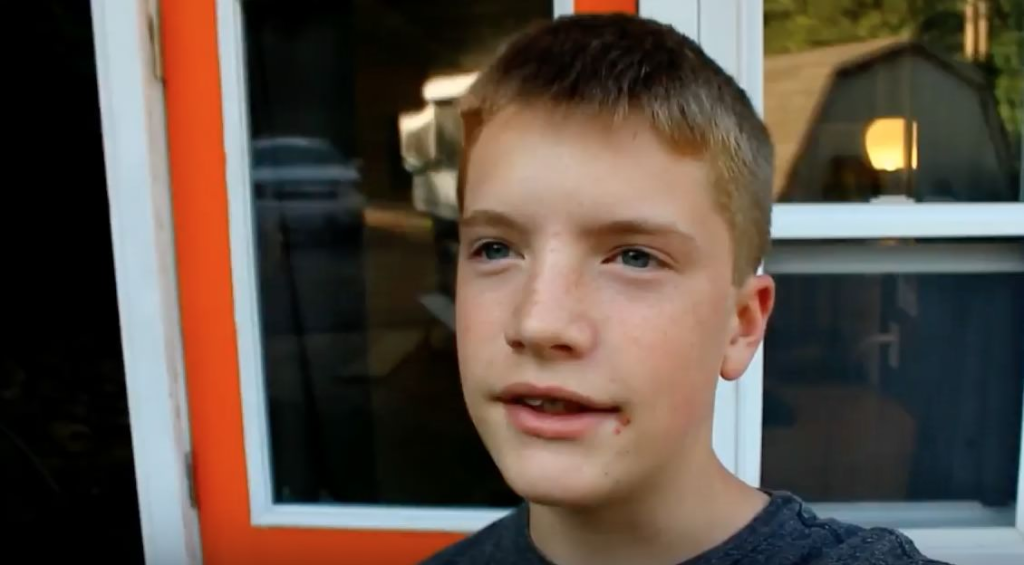
The Process
It took him about a year to get the money and materials he needed to build the house. Luke mowed lawns, started a fund-raiser online, and ran errands for anyone who needed help in the neighborhood to make money.
An electrician Luke was friends with helped him install the electricity in exchange for Luke cleaning his garage out, for instance.
Luke used about 75 percent recycled material, many of which were things left over from his grandma’s house. The front door of the house was a gift from an uncle’s friend.
The 89-square-foot house is 10 feet long and 5 1/2 feet wide, with electricity but no plumbing, so no water or bathroom… yet.
“I liked the minimalism,” he told The Des Moines Register. “And I wanted to have a house without a huge mortgage.”
Luke has made several video clips and posted them online, where he talks about his project as many have grown curious about the little house.

As you can imagine, Luke also received some help from his parents, both financially and with the building itself.
But dad Greg made sure that it would be Luke himself who would pay for most of his project and also build most of it himself.
“It was a chance for a kid to do something more than play video games or sports,” Greg told The Des Moines Register. “It teaches life lessons.”
Teenager’s Dream
The house is in many ways a teenager’s dream, an oasis where you can chill and hang out in. It has a microwave, a TV, and a loft with a bed.
There’s even a barbecue and flowers at the back.
Luke usually does his homework after school at his new house and some nights during the week he gets to sleep there.
Luke already has aspirations to build another house — one that’s a little bigger for when he starts college. He also hopes to inspire others to follow their dreams:
“I want to show kids it’s possible to build at this age,” he says in one of his videos.
You can really see how proud he is about his project below.
Luke’s story is a great example of what a child can achieve with a clear goal, a strong worth ethic, and support from home.
Pai envia carta semanal ao filho durante anos sem resposta e, de repente, recebe foto dele – História do dia

James escreve cartas para seu filho afastado, mas nenhuma resposta chega por anos. Um dia, seu filho Andrew envia uma foto com uma mensagem exigindo que James pare de tentar fazer contato. Incapaz de se conter, James dirige até a casa de seu filho para encontrá-lo, apenas para descobrir que Andrew pode não viver por muito tempo.
James estava inquieto. Mais uma vez, foi outra tentativa fraca. James suspirou profundamente enquanto lambia o selo e o colava no envelope endereçado ao seu filho Andrew.
Eles estavam afastados desde o funeral da falecida esposa de James. Apesar das tentativas de James de consertar seu relacionamento fraturado com seu filho, Andrew rejeitou todos os seus esforços.
Naquele dia, James recolheu as pilhas de contas de sua caixa de correio e sentou-se, jogando os envelopes em sua mesa de centro. Foi quando uma carta em particular chamou sua atenção, e seu coração pulou…

Apenas para fins ilustrativos | Fonte: Unsplash
Esfregando os olhos, James rasgou o envelope e tirou uma Polaroid.
“ANDREW!” um sussurro sincero escapou dos lábios de James quando ele viu Andrew sorrindo para a câmera com um braço em volta da esposa. Seus dois filhos pequenos estavam orgulhosos, exibindo seus melhores sorrisos.
Os olhos de James ficaram marejados e ele esperava que seu filho finalmente o tivesse perdoado.
Mas quando ele virou a foto, esperando ver uma mensagem adorável de seu filho, ele viu outra coisa. Algo que fez o sangue escorrer de seu rosto.
“James, você nunca fará parte desta família. Pare de me enviar cartas. E logo, ninguém estará aqui para recebê-las neste endereço.”

Apenas para fins ilustrativos | Fonte: Pexels
“O quê? Eles estão se mudando para algum lugar?” James pensou imediatamente.
Vários pensamentos o assombravam. Andrew havia entrado em contato depois de anos sem contato. James suspeitou que ainda faltava algo no quadro geral e decidiu conhecer seu filho.
Andrew morava a oito horas de carro, e James estava pronto para fazer essa viagem.
No dia seguinte, James estava dirigindo na rodovia. Longas viagens oferecem uma chance de pensar sobre tudo o que aconteceu no passado. A verdade é que ele nunca poderia culpar Andrew por cortar todo o contato. A culpa era de James.
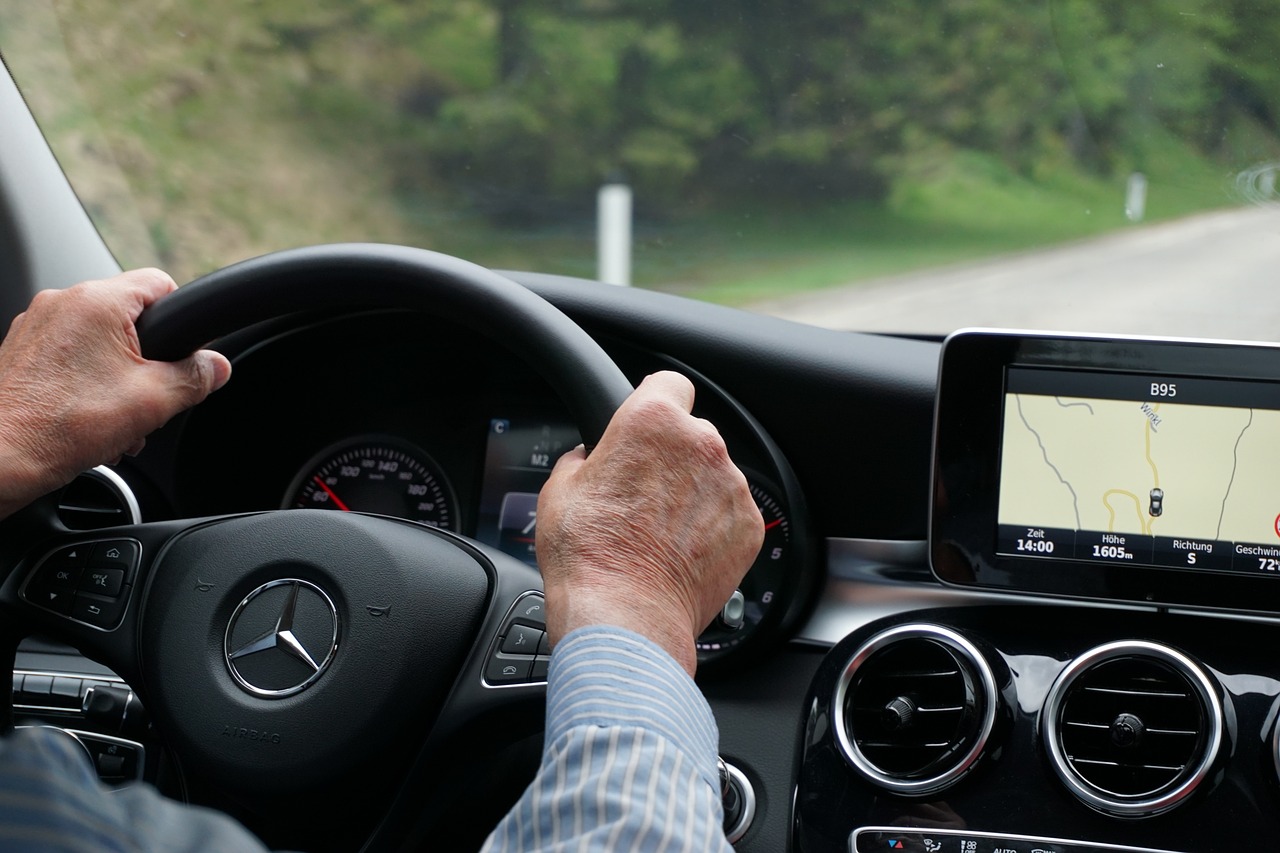
Apenas para fins ilustrativos | Fonte: Pixabay
Dez anos atrás…
“O que diabos está acontecendo aqui?” Um grito assustou James, que estava totalmente focado… nos seios de uma mulher.
Com o coração acelerado, James pulou da cama e puxou as calças, aproximando-se rapidamente de um Andrew furioso na porta.
“Andy, filho, não é o que você pensa… Eu… Eu estava apenas…” James gaguejou. “Eu posso explicar.”
“EXPLICA O QUÊ?? Que você está na cama da mamãe… abraçado com sua secretária?” Andrew gritou e saiu furioso enquanto James o seguia, seu rosto vermelho de vergonha.
“Filho, por favor, não conte para sua mãe. Sinto muito”, ele implorou.
“Eu não vou contar para a mamãe que você estava aqui, transando com sua secretária enquanto a mamãe apodrecia na cama do hospital”, Andrew fervia. “Eu nunca vou contar para ela que o marido dela é um pedaço de SH—”
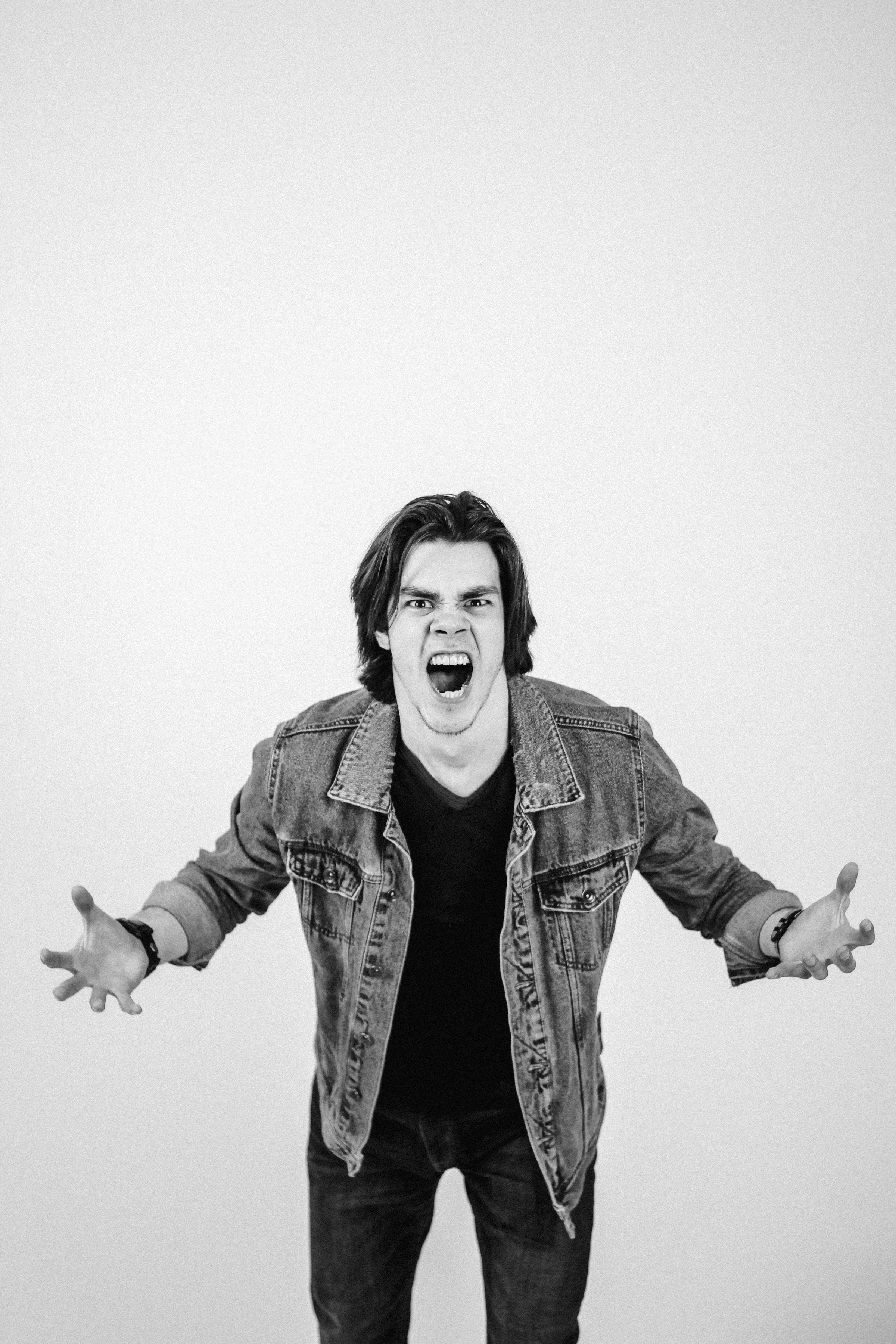
Apenas para fins ilustrativos | Fonte: Unsplash
“Andy, me desculpe. Eu… eu só estava…” James se apressou em pedir desculpas, incapaz de encarar Andrew.
“Saia da minha vista!” Andrew fumegou. “Quero que você vá até a mamãe… e fique ao lado dela. Você vai segurar a mão dela e dizer o quão maravilhosa ela era. E isso fica entre nós.”
O tempo pareceu pregar uma peça cruel em Andrew, que perdeu sua mãe, Vivienne, três meses depois. Assim que os médicos declararam que ela havia partido, Andrew expulsou seu pai da enfermaria.
“Eu cuido disso… vejo você no funeral”, ele sibilou.
Andrew fez um lindo elogio fúnebre à sua falecida mãe, e suas palavras levaram James e outros convidados às lágrimas.

Apenas para fins ilustrativos | Fonte: Pexels
Isso destruiu James, e ele não conseguia acreditar o quão tolo ele era em começar um caso com sua secretária quando sua esposa estava mais vulnerável. Seu único consolo era que sua falecida esposa nunca soube sobre seu caso, e James prometeu fazer as pazes com seu filho.
Entretanto, quando o funeral terminou e os convidados foram embora, Andrew se aproximou do pai com uma expressão fria, o que gerou tensão em James.
“Você nunca mais me verá!”, declarou Andrew.
“Andy, por favor… não. Por favor, não faça isso comigo. Por favor, me dê uma chance”, implorou James.
Mas Andrew foi embora e foi embora enquanto James o observava desaparecer do lado de fora do portão do cemitério.
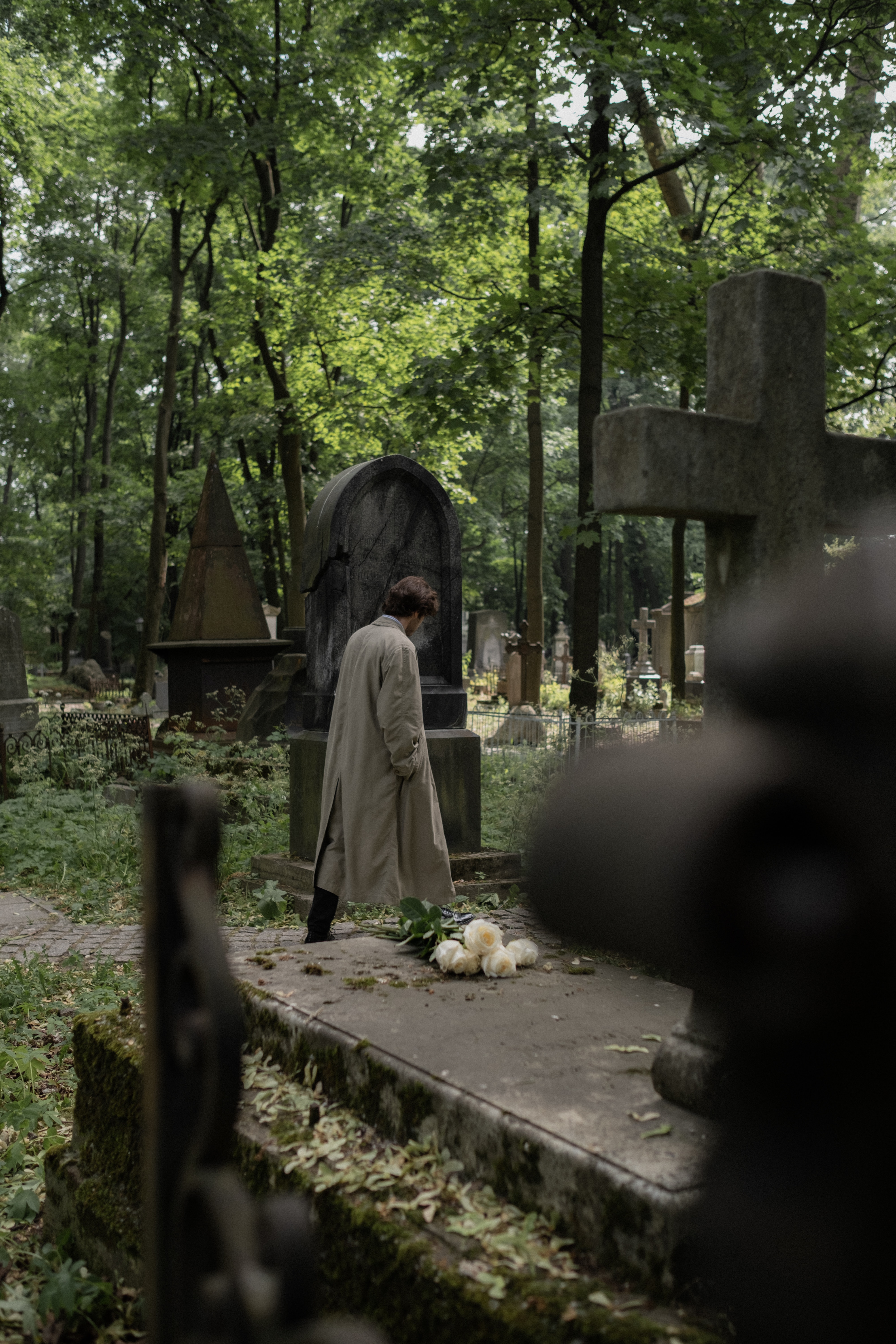
Apenas para fins ilustrativos | Fonte: Pexels
Uma buzina alta interrompeu os pensamentos de James quando ele parou em frente à casa de Andrew e bateu na porta.
“Sr. Carson?” uma mulher atendeu a porta. Ela era a esposa de Andrew, que rapidamente reconheceu James, embora eles nunca tivessem se conhecido antes. Ela o tinha visto em fotos antigas de família.
“Você é a esposa de Andrew, certo?” James perguntou a ela. “Posso ver meu filho, por favor?”
“Sim, eu sou Ashley…por favor, entre”, respondeu a mulher. “Temo que você não possa conhecer Andrew. Ele não está aqui.”
“Por favor, querida… quero ver meu filho e falar com ele pessoalmente”, disse James, com desespero estampado nos olhos.
“Sr. Carson, não estou mentindo. Andrew não está aqui.”
“Ah, onde ele está então? No trabalho?”
“Não… ele está… no hospital”, Ashley revelou, e sua revelação atingiu James como um saco de tijolos.

Apenas para fins ilustrativos | Fonte: Pexels
Andrew estava esperando um transplante porque seus dois rins estavam parados.
“Temo que você não possa conhecê-lo”, Ashley continuou. “Ele não vai reconhecer sua visita. Não podemos aumentar ainda mais o estresse dele porque ele já está passando por um momento difícil. Não posso deixar você aborrecê-lo.”
“Não, por favor. Meu filho está morrendo… e você está me pedindo para não vê-lo??” James argumentou. “Cansei de esperar para falar com ele por dez anos. Deixe-me falar com os médicos.”
Suspirando profundamente, Ashley concordou, e eles imediatamente dirigiram para o hospital.

Apenas para fins ilustrativos | Fonte: Unsplash
No hospital, o Dr. Mullins tinha notícias desanimadoras sobre Andrew. “Seu corpo não suportará outra rodada de diálise”, ele disse a James e Ashley. “Precisamos encontrar um doador o mais rápido possível.”
Após uma longa pausa, James olhou nos olhos do médico e chorou, suplicantemente juntando as mãos em oração. “Vou doar meu rim.”
“Não, não podemos fazer isso”, Ashley interrompeu, alarmada.
“O quê?? Por que não? Eu tenho que… eu tenho que salvar meu filho,” James se virou para ela em choque.
“Meu marido e o pai dele estão afastados, doutor”, Ashley disse ao Dr. Mullins. “Isso o aborreceria, e ele rejeitaria se descobrisse que o pai dele é o doador.”
“Eu entendo. Mas primeiro, precisamos saber se o Sr. Carson é compatível. Além disso, Ashley, esta pode ser a última chance do seu marido”, explicou o Dr. Mullins.

Apenas para fins ilustrativos | Fonte: Pexels
“Mas doutor… você disse que poderíamos esperar até conseguirmos um doador… e que Andrew estava no topo da lista. Não me importo que o Sr. Carson se ofereça para ajudar. Mas isso levaria a um grande problema, e não acho que meu marido aceitará bem”, Ashley expressou sua preocupação.
“E se ele não descobrir nada?”, interrompeu James.
“O que você quer dizer?” Ashley se virou para ele, com as sobrancelhas franzidas.
“Ele não precisa saber quem é seu doador!”, acrescentou James.
“Mas isso não é ilegal?” Ashley perguntou.
“Não, Ashley, não é ilegal. Vamos ver se o Sr. Carson pode ser um doador para Andrew.”

Apenas para fins ilustrativos | Fonte: Pexels
“Ashley, por favor”, James agarrou o braço dela. “Quero que Andrew viva uma vida longa e saudável… e seja feliz com você e as crianças. Só me dê esta chance de ajudá-lo. Não estou pedindo mais nada. Só isso. Assim que a cirurgia terminar, vou embora. Não vou incomodá-lo nunca mais.”
Embora relutante e insegura quanto às consequências, Ashley concordou. “Tudo bem, vamos fazer os testes.”
Felizmente, James era uma combinação perfeita. O Sr. Mullins disse a Andrew que eles tinham encontrado um doador. Surpreendentemente, Andrew nem questionou e apenas agradeceu ao “doador anônimo”.

Apenas para fins ilustrativos | Fonte: Pexels
Após a cirurgia, Andrew recebeu alta do hospital 15 dias depois. Com o passar do tempo, suas estatísticas melhoraram e não havia sinais de rejeição de órgãos.
Mais algumas semanas se passaram. Andrew se sentia um novo homem e estava se preparando para voltar ao trabalho. Mas ele estava preocupado com Ashley.
“Querida, estou perfeitamente bem agora”, Andrew se aproximou de Ashley. “Você não ouviu o que o Dr. Mullins nos disse quando a visitamos outro dia?”
“Espero que tudo corra bem, Andrew”, Ashley disse enquanto pegava a pilha de correspondências na mesa de centro. “Vou só resolver essas coisas.”
“Espere, deixe-me fazer isso por você!” Andrew insistiu. Enquanto pegava os papéis, ele xingou de repente.
“Outra carta? Esse homem não entende indiretas. Por que ele não nos deixa em paz?” Andrew sibilou.
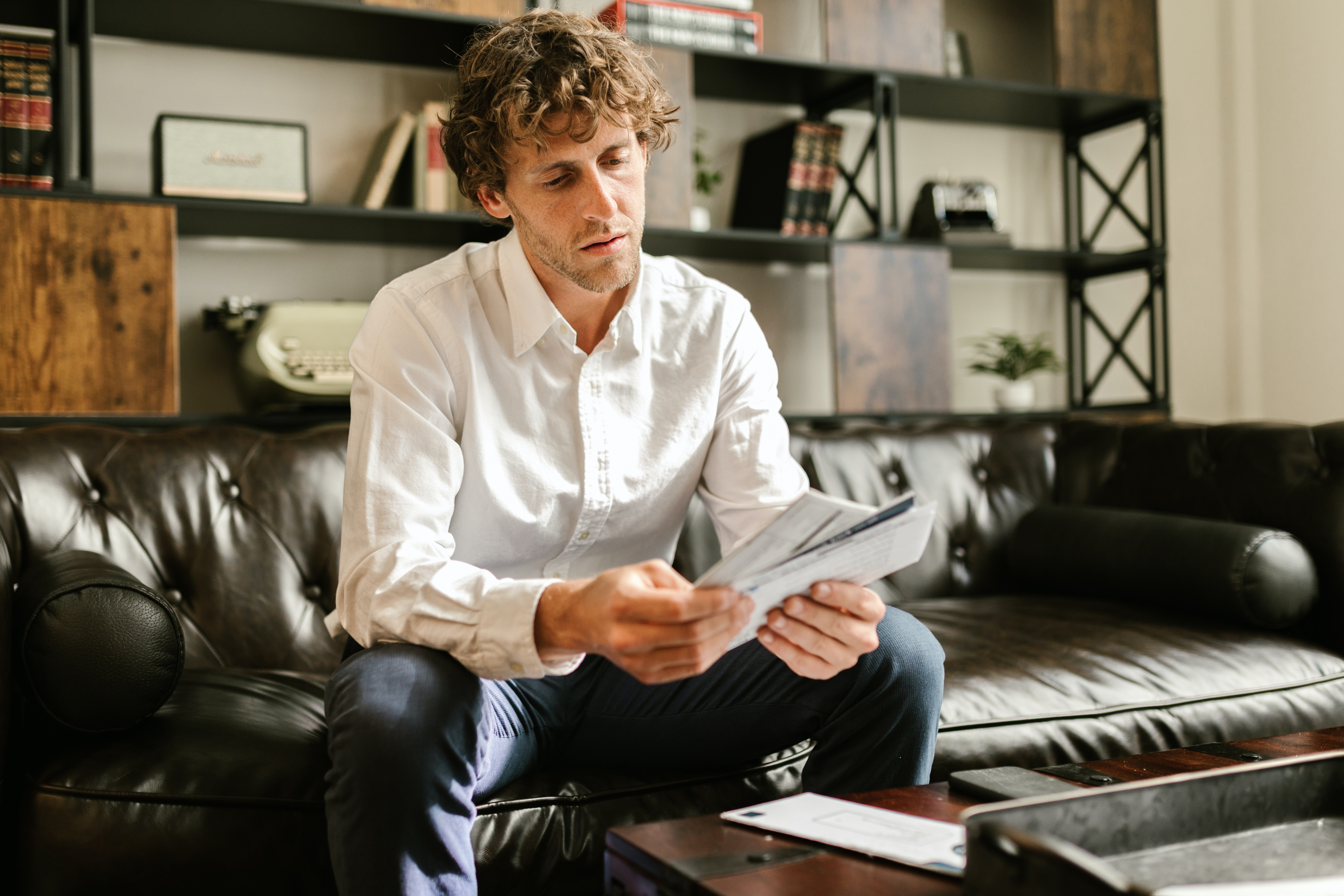
Apenas para fins ilustrativos | Fonte: Pexels
“Você está falando do seu pai?” Ashley perguntou a Andrew.
“Quem mais? Ele enviou outra carta. Tem algumas semanas. Mas quem se importa? Vai direto para o lixo!” Andrew estava prestes a jogar o envelope na lixeira quando Ashley se levantou.
“ESPERE! NÃO JOGUE FORA…” ela gritou. “LEIA!”
“Que diabos? Pare de gritar comigo, Ash… você quase me deu um ataque cardíaco! E leu essa carta idiota? De jeito nenhum”
“ELE É O DOADOR, ANDREW. SEU PAI É O DOADOR!” Ashley deixou escapar, paralisando Andrew.

Apenas para fins ilustrativos | Fonte: Pexels
“O QUÊ??” Andrew diminuiu a velocidade em choque. “C-Como isso aconteceu?”
“Prometi manter segredo. Mas não posso mais. Sinto muito por não ter contado. Seu pai… ele visitou você algumas semanas atrás. E doou o rim quando soube que você precisava de um doador e não conseguiu encontrar um.”
Andrew não conseguiu processar a revelação e se aproximou de Ashley. “Está tudo bem… eu entendo. Está tudo bem. Não é sua culpa. Se eu soubesse que ele era o doador, provavelmente teria rejeitado… porque ainda não consigo perdoá-lo”, ele disse, envolvendo os braços em volta dela.
“Eu sei. Mas todos nós cometemos erros. Seu pai vem pagando o preço por seu erro há muito tempo. Acho que é hora de deixar de lado seus erros e perdoá-lo.”
Depois de pensar muito, Andrew abraçou Ashley. “Talvez você esteja certa. Mas não vou escrever uma carta para ele. Vou vê-lo pessoalmente.”
Então eles imediatamente entraram no carro e foram encontrar James.

Apenas para fins ilustrativos | Fonte: Unsplash
O punho de Andrew bateu na porta do pai, mas não houve resposta.
“Pai…abre. Sou eu!”
Momentos depois, uma voz estridente interrompeu por trás. “Ei, o que você está fazendo aí?”
Andrew se virou e viu uma mulher mais velha, vestida de jardinagem, se aproximando dele.
“Desculpe se falei alto. Esta é a casa do meu pai… e eu vim vê-lo”, disse Andrew, descendo os degraus da varanda.
“Você é filho de James?” a mulher perguntou, erguendo as sobrancelhas. “Você não sabe?”
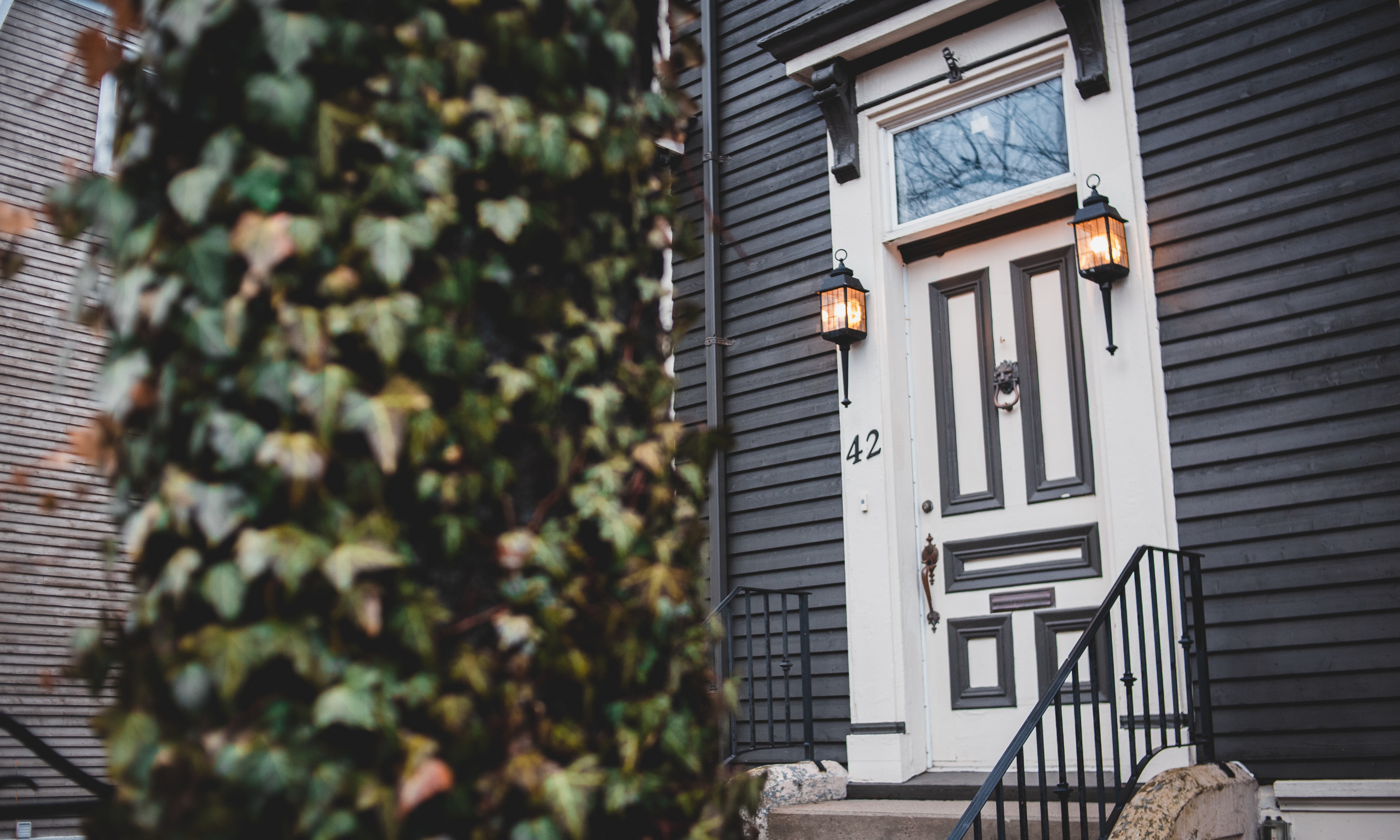
Apenas para fins ilustrativos | Fonte: Pexels
“Sabe de uma coisa?”
“James faleceu”, disse a mulher. “Ouvi dizer que ele teve uma infecção na cirurgia e foi internado no hospital. Ele morreu há alguns dias.”
Por anos, Andrew pensou que a morte do pai não importaria. Por anos, ele lamentou por sua mãe, dizendo a si mesmo que ela era sua única mãe. Esse vazio nunca poderia ser igualado. Mas o vazio deixado em seu coração naquele dia contou outra história.
Quando Andrew estava pronto para perdoar seu pai e começar um novo capítulo em suas vidas, seu pai havia partido.
“Cheguei tarde demais…” ele começou a chorar.

Apenas para fins ilustrativos | Fonte: Pexels
Diga-nos o que você acha dessa história e compartilhe com seus amigos. Pode inspirá-los e alegrar o dia deles.
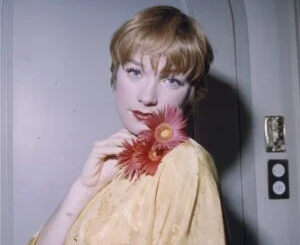
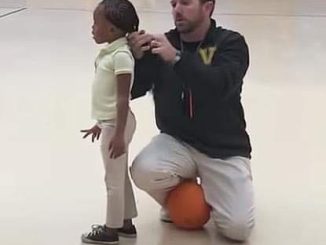

Leave a Reply